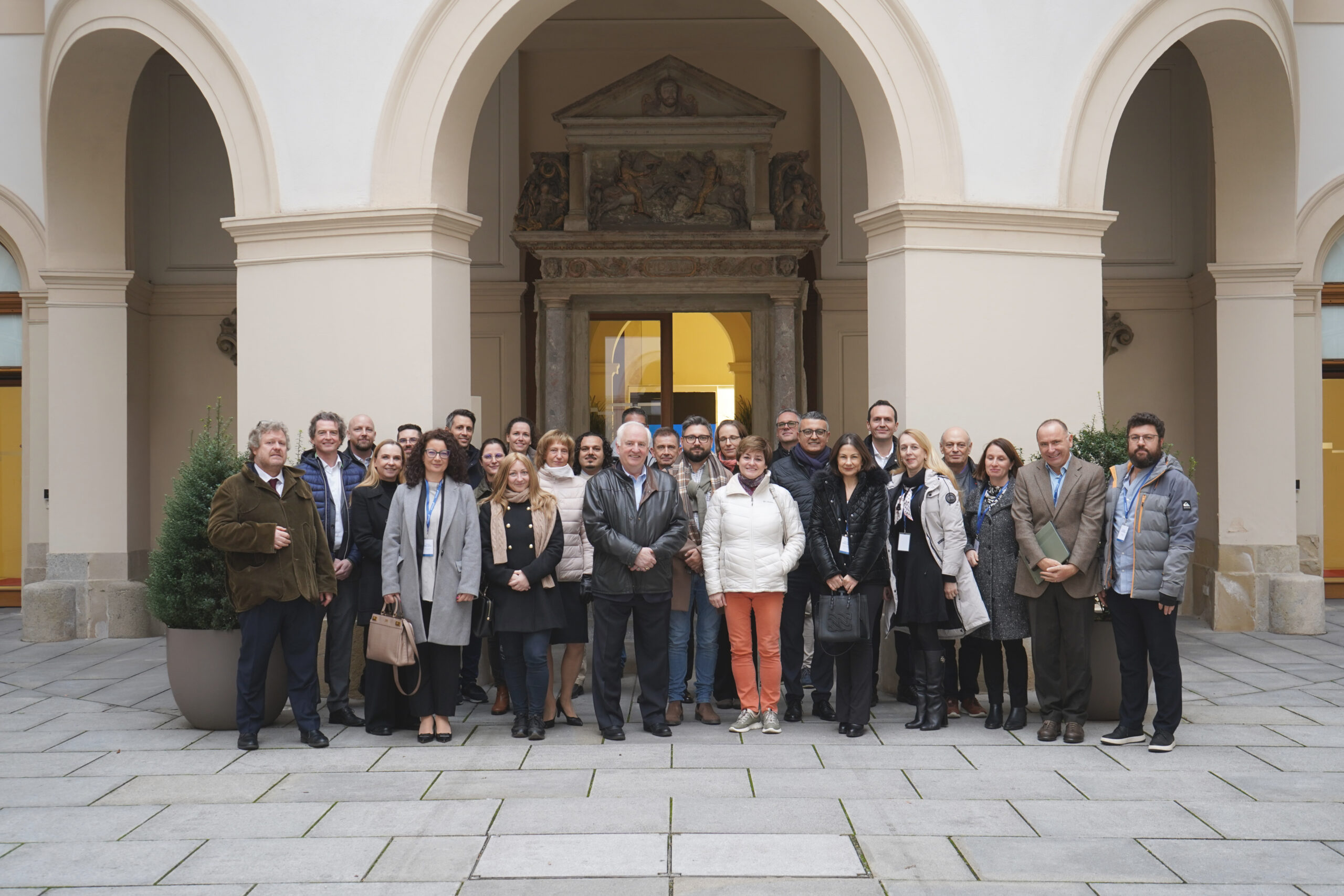Cancer therapy across borders: MedAustron hosted the 1st International Particle Therapy Alliance Meeting
On November 20 and 21, the MedAustron ion therapy and research center in Wiener Neustadt invited radiation oncologists from (South) Eastern Europe and the Middle East to exchange ideas at the “1st International Particle Therapy Alliance Meeting.” The program focused on knowledge transfer and opportunities for cooperation in the field of particle therapy for cancer treatment.

MedAustron is one of only a few centers worldwide that offer radiation therapy with different types of charged particles and is strongly connected internationally, for example through participation in multinational clinical trials. MedAustron also serves as a treatment center for patients from abroad when particle therapy is not available locally — this group accounts for nearly 20 percent of those treated. The aim of the meeting initiated by MedAustron was to bring referring specialists from abroad up to date on the latest knowledge regarding radiation therapy with protons and carbon ions, as well as on the treatment concepts and clinical outcomes applied at MedAustron, and to explore opportunities for cooperation at the scientific level. Six countries were represented: Hungary, Bulgaria, Croatia, Slovakia, Turkey, and Israel.
The first day of the meeting took place at Palais Niederösterreich in Vienna, where the morning was primarily dedicated to information exchange. Clinical results — for example in the treatment of pediatric patients, CNS tumors, or the re-irradiation of tumor recurrences — were on the agenda, as was the new program for the treatment of ocular tumors. A dedicated thematic block focused on carbon-ion therapy: compared to proton therapy, this is a much less commonly available form of particle therapy, and the MedAustron team is among the leading groups in this field. The afternoon was devoted to open discussion sessions to gain a better understanding of country-specific characteristics in healthcare, cancer therapy, and research. The second day of the meeting took place at MedAustron in Wiener Neustadt, where participants had the opportunity to look behind the scenes of the particle accelerator facility.
MedAustron’s Medical Director, Prof. Dr. Eugen B. Hug, summed up the meeting:
“It is of great importance to us to enable patients from neighboring or nearby countries to access highly specialized cancer therapy, and close cooperation between the treating physicians in their home countries and our team is essential for this. The meeting gave us the opportunity to strengthen existing relationships, establish new contacts, and created a solid basis for the future joint treatment of cancer patients.”
